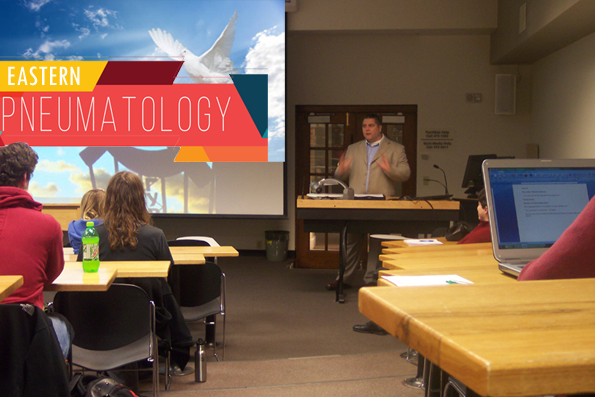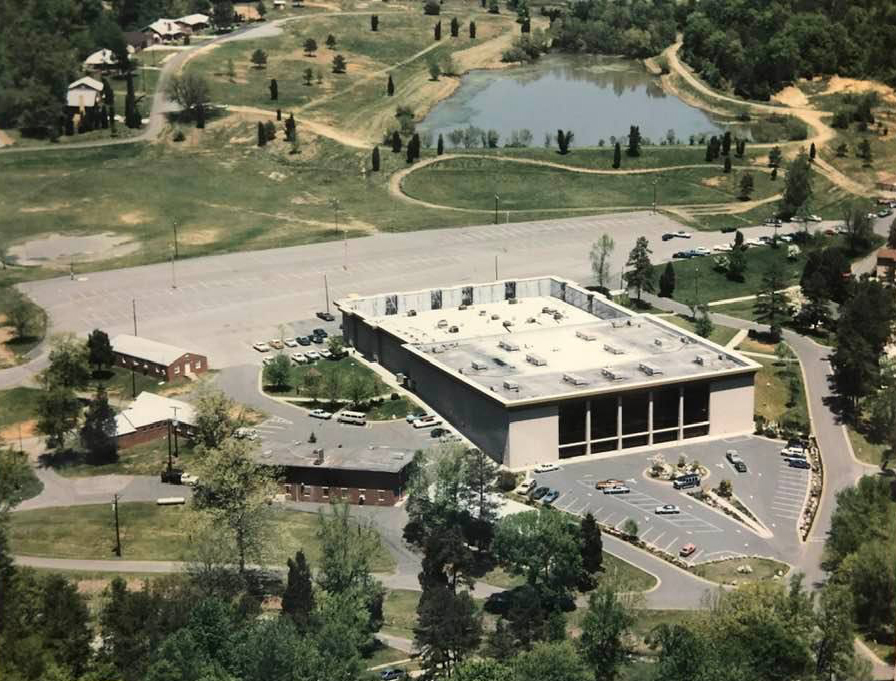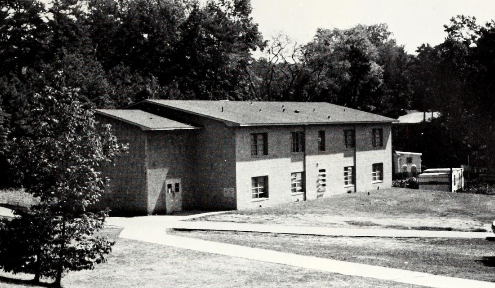SIGNS of the LAST DAYS: Middle East Tension

The East Syrian (Assyrian) Church

Dony K. Donev, D.Min.: Eastern Pneumotology Lectures
Eastern Orthodoxy can be expressed in one word: theism. The purpose and meaning of life is to become more like God. Deification is pursued by all means of human existence. This quest for divine likeness often includes the typical for the Eastern Church, speculation on the divinity and humanity of Christ, traditions on the doctrine of the Trinity and non-traditional mystical experiences. They appear in the context of both physical and spiritual characteristics in individual and corporate ecclesiastical environment. The role of the Spirit in the process of deification is threefold and involves: creation, re-creation and theism. Eastern Pneumotology follows the graduate process of theism development. The Spirit is involved in the original creation of the world as well as the new-birth experience. His work however, does not end there, but continues throughout the process of personal deification of the believer.
The East Syrian (Assyrian) Church
The Assyrian Church is viewed in direct connection with the Jacobites.[1] The church grows in the context of Nestorianism and Assyrian practices.[2] Yet, the literature of the Assyrian Church is full of pneumatologay including symbolic language and profound spirituality.[3] For example, Narsai’s (413-ca. 503) pneumatology is strictly in the boundaries of liturgical and sacramental practices. An immediate contrast, however, is Isaac of Nineveh (7th c.), who, during sacraments, would suddenly fall on the floor, repeatingly rising up and kissing the cross.[4]
For Narsai the Spirit sanctifies and edifies the church through baptism.[5] In a similar manner, Hazzaya (d. ca 690), another Assyrian writer, views the Holy Spirit not only as Edifier, but also as Perfector of the Church.[6] As such, He brings transformation in the life of the believer.[7] This state is reached with beyond the conscious prayer.[8] It is accompanied with sweet odors,[9] tears of joy[10] and sound of glorification heard in the soul of the individual.[11] This description fits the previously discussed experience of Symeon the New Theologian.[12] Isaac of Nineveh also describes the ecstasy in the Spirit in the means of tears of joy[13] and “a state of drunkenness.”[14]
The above is strictly a personal experience.[15] In a corporate, ecclesiastical context, the union of individual experiences builds the Kingdom of God. In this sense the Kingdom is an already-not-yet reality, in which the direction of the Holy Spirit is essential. [16]
The gifts are essential for the life of the Kingdom. According to Narsai, the they are received through laying on of hands.[17] Healing is obtained through a similar ritual.[18] Isaac claims that they are bestowed in a time of prayer.[19] They are accepted in humility out of which comes as burning compassion for the creation.[20]
Hazzaya, furthermore, gives five practical signs for recognition of the works of the Holy Spirit: (1) love of God burns within the heart of the believer, (2) growth in humility of the soul, (3) kindness to all people, (4) true love and (5) vision of mind. His main tool to recognize demons and demonic visions from God and divine revelations is the peace of heart, which follows the heavenly presence.[21]
Peace can be also reached through reading of Scripture. According to Isaac of Nineveh, Scripture delivers us from every evil thought and turns our minds to good.[22] Scripture is to be read not by chapters, but a passage at a time with prayerful desire for understanding.[23] This is one of the first recorded attempts explaining the connection between pneumatic experiences and Scripture.
[1] Burgess, 85.
[2] Ibid., 88.
[3] Ibid., 89.
[4] A. J. Wensinck, Mystical treatises of Isaac of Nineveh, trans. From the Bedjan Syrian text (Amsterdam: Koninklijke akademie van wetenschappen, 1923), 95-96.
[5] R. Hugh Connolly, The Liturgical Homiletics of Narsai, Studies and Texts 8 (Cambridge: University Press, 1909), 46, 49-50.
[6] Alphonsi Mingana, “Joseph Hazzaya: The Shortest Path that Leads us to God,” Early Christian Mystics, Woodbroke Studies 7 (Cambridge: W. Heffer and Sons, 1934), 148.
[7] Ibid.,149.
[8] Ibid., 171.
[9] Ibid., 148-49.
[10] Ibid., 183.
[11] Ibid., 183.
[12] Disc. 3329.5, 313.
[13] Wensinck, 330.
[14] Ibid., 253.
[15] Mingana, 157.
[16] Ibid.
[17] Connolly, 8, 21, 34, 40, 49, 53, 63.
[18] Ibid., 35, 44.
[19] Wensinck, xxxix, 116-17.
[20] Ibid., 388.
[21] Mingana, 173-74.
[22] E. Kadloukovsky and G. E. H. Palmer, Early Father from the Philokalia (London: Faber and Faber, 1954), 242.
[23] Wensink, 84.
East Coast Bible College and Byrd Dorm
South East Region Prayer Meeting in Bulgaria
East Coast Bible College Alumni Reunion August 29–31, 2008 Charlotte NC
For over twenty years, East Coast Bible College was a place which left a great legacy of training as well as wonderful memories for many students, staff, local pastors, and denominational leaders. It was a place where students and faculty grew in a deeply intimate relationship with our Great Father. It was a place where we were trained and prepared to step out into places of ministry that still continues throughout the world. It was also a place where many were able to see God move with great demonstration in spiritual gifts, miracles and forthright testimonies of God’s power. Through these faculty and students, East Coast Bible College still lives today! Read more
When East Met West
 Fear not: for I am with thee: I will bring thy seed from the east, and gather thee from the west. (Isaiah 43:5, KJV)
Fear not: for I am with thee: I will bring thy seed from the east, and gather thee from the west. (Isaiah 43:5, KJV)
And I say unto you, that many shall come from the east and west, and shall sit down with Abraham, and Isaac, and Jacob, in the kingdom of heaven. (Matthew 8:11, KJV)
God promised to gather His people from the East and the West in the last days. With the world’s present fragmentation, this prophecy can be fulfilled only through divine intervention. The miraculous initiation of God’s plan began with the fall of the Berlin Wall in 1989.
With the collapse of the Berlin Wall, the Old Continent was introduced to a new set of opportunities and obstacles as the vision of a unified Europe quickly materialized. The clashing of two sociopolitical extremes, kept apart for half a century created a host of pressing dilemmas. In the midst of economical, political, social, cultural and simply human diversities, religion played a central role throughout the process that culminated in the emergence of the European Union. The religious reformative processes within Europe were not foreign to Bulgaria, a small post-Communist country located in the corner of Europe, the place where the East and the West, Europe and the Orient, Christianity and Islam have met for centuries.
After the exodus from Communism, the Bulgarian church quickly found itself unprepared for the role of religious frontier. The Orthodox majority, historically striving for symphony between church and state, remained insecure and drained from its symbiotic half-century existence with the Communist Regime. This condition quickly resulted in ongoing series of internal struggles and splits.
At the same time, the Protestant movement retained strength in some of its most powerful communities through the existence of underground churches. As freedom presented opportunity, Protestantism quickly spread. Pentecostal wings, represented by main stream denominations like the Church of God, the Assemblies of God and some newly found independent charismatic formations were primarily responsible for the rapid growth. While Orthodoxy remained a significant majority fide nomine tenus and the Catholic Church retained membership of 70,000, the Pentecostal revival which swept Bulgaria from 1989 to 1995 claimed over 100,000 new believers.
Unfortunately, the first steps toward freedom were sporadic and unplanned. The rapid growth could not compensate the lack of training and leadership, which the Protestant communities experienced under Communism. Global fast-paced change swept Eastern Europe, catching the Bulgarian church unprepared. The Protestant movement was unable to become a direct beneficiary of the freedom which it had long prophesied and fervently expected. The incapacity of the Protestant movement contributed to a preposterous preponderance of apathy in every area of church life:
1. Leadership: During the Communist Regime, the Protestant churches were constantly bombarded with direct denial of their independent existence as free religious communities. Insufficient leadership training created numerous deficiencies including inadequate knowledge of church governing procedures, low levels of personal and corporate accountability and ignorance of the church’s political and social roles. After the fall of the Wall, these crises in leadership quickly produced congregational splits and added to the confusion generated by the socio-economical struggles in the young Bulgarian democracy.
2. Religious freedom: State control and direct interference in church business continued even after 1989 through a government agency called Directorate of Religious Affairs. The agency could not provide the intended balance between church and state due to its default state ties. Its bureaucratic management style and lack of experts on all of the represented religious groups facilitated the legislation of regulations and actions which have led to continuous tensions between the various religious groups. Many Bulgarian and international observers have noted that the present situation may have been orchestrated by the state to control the religious life in Bulgaria by creating a complete dependence on the Directorate of Religious Affairs.
3. Communication: During the regime, the underground church discouraged official administration and communication due to fear of persecution. In the era of freedom, this practice continued, limiting contact between church leadership and local congregation. Lack of communication resulted in the failure to relate reverence of protestant tradition to the younger generation.
4. Postmodernism: Due to a focus on political and economical issues, the church in Bulgaria and the Bulgarian culture never realized the speed with which the emerging postmodernism entered 21st Century Bulgaria. The introduced secularism maintained the atheistic trend used as social foundation by the Communist Regime. Within the church, postmodern supporters quickly produced complete denial of historical and theological progress, demoralization and discontinuity with Biblical holiness.
5. Theology: The unification of Europe opened doors for travel and immigration, which initiated a theological exchange for which the Bulgarian church was unprepared. Subconsciously and inescapably, foreign theology flooded the Bulgarian church without the test of time and experience.
Perhaps the above list may not seem that much different than the multitude of issues currently faced by Protestantism around the globe. However, the situation associated with the meeting of the East and West in Bulgaria is defined by a distinguishing feature – the mentality of the people. It is there that the political, economical and, not lastly, theological transformations must take place. Without such transformations, even liberated, the Bulgarian church remains underground in reality.
The meeting of East and West facilitated the unification campaign occurring in Europe. The push towards a unified Europe shaped the formation of religious freedom in Bulgaria as Bulgarian politicians quickly implemented a new law of religions to replace the 1945 Confessions Act composed and used by the Communist Regime. The new legal definition was an unsuccessful attempt to impose a governmental solution to the crises experienced by the Orthodox Church and other religious communities in Bulgaria. The results were disastrous. On July 21, 2004, in a preplanned action upon the Chief Prosecutor’s order, the police stormed through 250 churches, detaining clergies in controversial raid to restore proprietorship of the official Bulgarian Orthodox Church.
What has become obvious thus far is the fact that state, law or government are unable and should not attempt to dictate the existence or actions of the church which as a divinely established institution holds a predominate place above them. Neither constitution, nor human law, but the Bible alone must be the source for transformation and reconstruction of the Bulgarian Church. The Bulgarian Christians must reclaim their past as a persecuted church which knows from experience how to go through persecutions and survive. At the same time, the persecuted church must continue to ask the question, how is it possible for a church to preserve its Biblical identity without going through persecutions? It is from this quest for Biblical identity in postcommunist and postmodern context, that a theology of freedom will emerge to respond to the needs and demands of the Christian community in Eastern Europe.











